Today I got woken up by the cleaning ladies. What they do is knock repeatedly and loudly on the door while shouting “nihao”. Then they let themselves into the apartment before attacking the bedroom doors. After you let them in they just invade and clean your room. It takes them about 15 minutes to clean the whole apartment. I ate breakfast while they were cleaning. Then I went through the rest of my normal morning routine. I finished packing and got lunch from the pancake place. I came back to the apartment and ate it with some pineapple I bought earlier this week. After that I made my way to the bus. Our bus on this trip is from National Rental, which is the same company that took us from Shanghai to Suzhou on our first night. I was only able to get my essay about half finished on the way out because my laptop was only half charged. After that I drew for a few hours as we rolled through farmland. We made a pit stop after about an hour and then continued on.
We kept rolling along until I was surprised to see we were back in Hangzhou. We rolled through Hangzhou and headed for the mountains. There was striking scenery on the opposite side of Hangzhou. The highway passed through and crossed several river valleys, and we began to encounter more bridges and tunnels. The scenery changed.
We kept rolling along until I was surprised to see we were back in Hangzhou. We rolled through Hangzhou and headed for the mountains. There was striking scenery on the opposite side of Hangzhou. The highway passed through and crossed several river valleys, and we began to encounter more bridges and tunnels. The scenery changed.
The scenery was not unlike that of other mountain regions, but I hadn’t seen anything like that in months. Suzhou is literally flat as a pancake, so I haven’t even really seen a hill for the most part, except on a couple of the longer excursions. The scenery was rather amazing, as mountain scenery tends to be. I spent some time trying to think of how best to describe it. I’m going to use scenes from North America to describe it, because that’s what I know best.
Take the mountain scenery of British Columbia. Wear down the mountains so that it looks like a cross between the Appalachians and the Rockies, but more like the latter than the former. Then populate this landscape with the towns, canals, backways and byways of Appalachia. Give it the climate of southern Georgia and northern Florida. Take out two-thirds of the trees. Replace one third with bamboo, and the other with tea plantations. That’s pretty similar to what we saw.
In total on this whole excursion I think we went across about a hundred bridges and viaducts, and through probably twenty tunnels. And not one of those tunnels was less than a hundred meters. Tea plantations climb the mountainsides on man-made terraces, with trails running up, down, and across for the harvesters. Towns are nestled into valleys and canyons alongside streams and creeks, and there are cities spread out along river valleys. You cross a valley, shoot into a tunnel, and pop out the other side into a whole new scene. The whole thing is like going through a mega-sized Chinese garden, with winding paths running around view blocks and constantly giving different perspectives of the same objects.
We rolled through a tunnel into another river valley, exited the highway, and headed into Huangshan. We drove along on an approach to the city, and presently we stopped at a light. The weather had changed on the way down, and it was raining nicely. So, while we were stopped at the light, two mopeds collided head-on. Professor Washington’s wife was freaking out, but the two drivers didn’t seem hurt, although, even our bus diver went slowly by to make sure that they weren’t in serious condition. I was happy that they were ok, but wasn’t especially surprised that it occurred. You see, the Chinese in general are really big on electricity conservation. If something doesn’t absolutely have to be on, they turn it off. So mopeds, because they can usually see just fine, don’t like to use their lights at all, and also prefer not to use their horns. So it’s not surprising that two of them collided head-on one rainy afternoon with not so much as a beep prior to the collision.
A little while later we arrived at our hotel and checked in. This hotel reminded me of a much nicer version of the one we stayed in during our Hangzhou visit. We had dinner in the hotel. we got our own room for dinner, and the table I sat at was right under a small dome. All of us at the table noticed fairly quickly that the room was very acoustically “moist”, and that the dome amplified our voices so that it sounded to each other like we were speaking through microphones.
Take the mountain scenery of British Columbia. Wear down the mountains so that it looks like a cross between the Appalachians and the Rockies, but more like the latter than the former. Then populate this landscape with the towns, canals, backways and byways of Appalachia. Give it the climate of southern Georgia and northern Florida. Take out two-thirds of the trees. Replace one third with bamboo, and the other with tea plantations. That’s pretty similar to what we saw.
In total on this whole excursion I think we went across about a hundred bridges and viaducts, and through probably twenty tunnels. And not one of those tunnels was less than a hundred meters. Tea plantations climb the mountainsides on man-made terraces, with trails running up, down, and across for the harvesters. Towns are nestled into valleys and canyons alongside streams and creeks, and there are cities spread out along river valleys. You cross a valley, shoot into a tunnel, and pop out the other side into a whole new scene. The whole thing is like going through a mega-sized Chinese garden, with winding paths running around view blocks and constantly giving different perspectives of the same objects.
We rolled through a tunnel into another river valley, exited the highway, and headed into Huangshan. We drove along on an approach to the city, and presently we stopped at a light. The weather had changed on the way down, and it was raining nicely. So, while we were stopped at the light, two mopeds collided head-on. Professor Washington’s wife was freaking out, but the two drivers didn’t seem hurt, although, even our bus diver went slowly by to make sure that they weren’t in serious condition. I was happy that they were ok, but wasn’t especially surprised that it occurred. You see, the Chinese in general are really big on electricity conservation. If something doesn’t absolutely have to be on, they turn it off. So mopeds, because they can usually see just fine, don’t like to use their lights at all, and also prefer not to use their horns. So it’s not surprising that two of them collided head-on one rainy afternoon with not so much as a beep prior to the collision.
A little while later we arrived at our hotel and checked in. This hotel reminded me of a much nicer version of the one we stayed in during our Hangzhou visit. We had dinner in the hotel. we got our own room for dinner, and the table I sat at was right under a small dome. All of us at the table noticed fairly quickly that the room was very acoustically “moist”, and that the dome amplified our voices so that it sounded to each other like we were speaking through microphones.
After dinner we all headed into Tunxi Old Town to do some tourist shopping. Our group rather quickly separated. When I headed back towards the hotel, it was with Lauren and Lydia. On the way it started to rain, and soon became a torrential downpour. We made it back to the hotel rather soaked, and ended up spending the night drying our clothes. Several of us also gathered in one room to watch The Sisterhood of the Travelling Pants. After that, I finished writing my project management essay before going to bed.
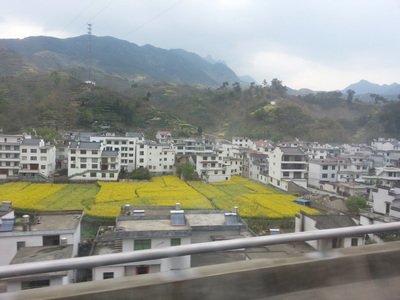
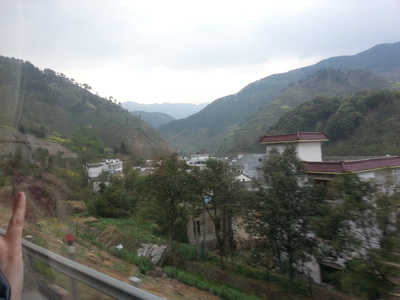
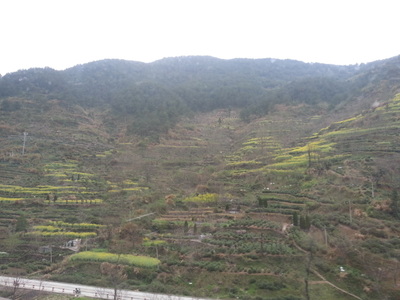
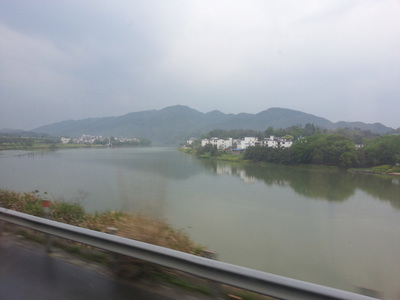
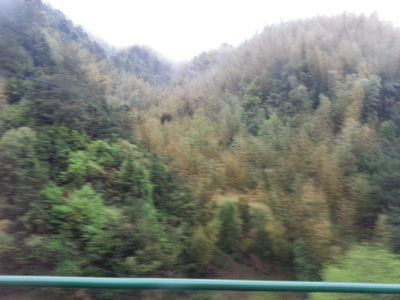
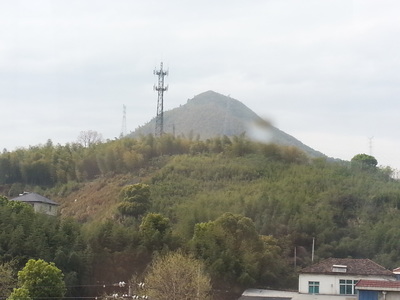
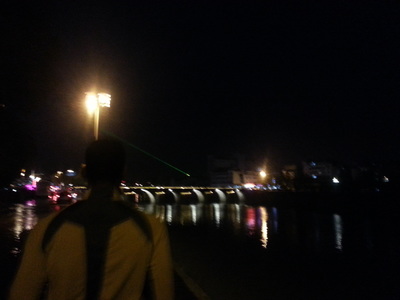
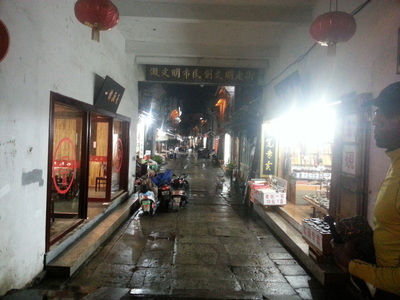
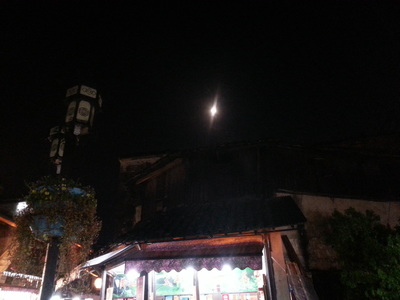
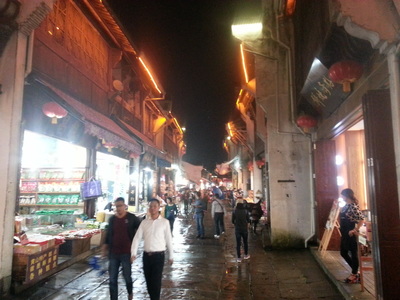
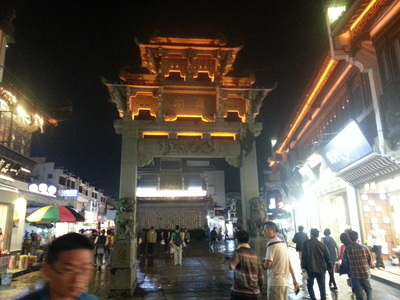
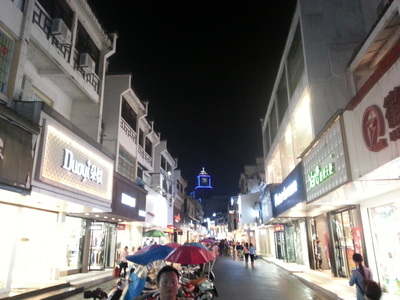
 RSS Feed
RSS Feed